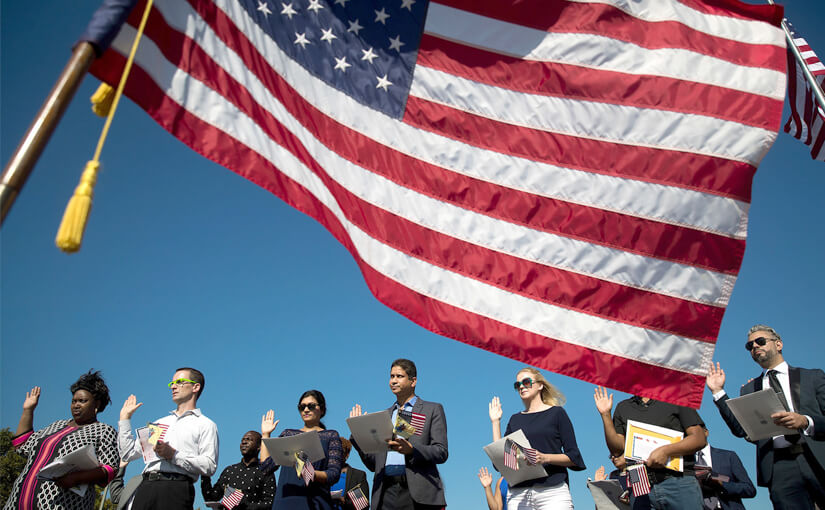- Give up loyalty to other countries
- Defend the Constitution and laws of the United States
- Obey the laws of the United States
- Serve in the U.S. military (if needed)
- Serve (do important work for) the nation (if needed)
- Be loyal to the United States
When the United States became an independent country, the Constitution gave Congress the power to establish a uniform rule of naturalization.
Congress made rules about how immigrants could become citizens. Many of these requirements are still valid today, such as the requirements to live in the United States for a specific period of time, to be of good moral character, and to understand and support the principles of the Constitution.
After an immigrant fulfills all of the requirements to become a U.S. citizen, the final step is to take an Oath of Allegiance at a naturalization ceremony.
The Oath of Allegiance states, “I hereby declare, on oath, that I absolutely and entirely renounce and abjure all allegiance and fidelity to any foreign prince, potentate, state, or sovereignty of whom or which I have heretofore been a subject or citizen; that I will support and defend the Constitution and laws of the United States of America against all enemies, foreign and domestic; that I will bear true faith and allegiance to the same; that I will bear arms on behalf of the United States when required by the law; that I will perform noncombatant service in the Armed Forces of the United States when required by the law; that I will perform work of national importance under civilian direction when required by the law; and that I take this obligation freely without any mental reservation or purpose of evasion; so help me God.”
** As you prepare for U.S. citizenship, Learn About the United States: Quick Civics Lessons will help you study for the civics and English portions of the naturalization interview. There are 100 civics (history and government) questions on the naturalization test. During your naturalization interview, you will be asked up to 10 questions from the list of 100 questions. You must answer correctly six (6) of the 10 questions to pass the civics test.











